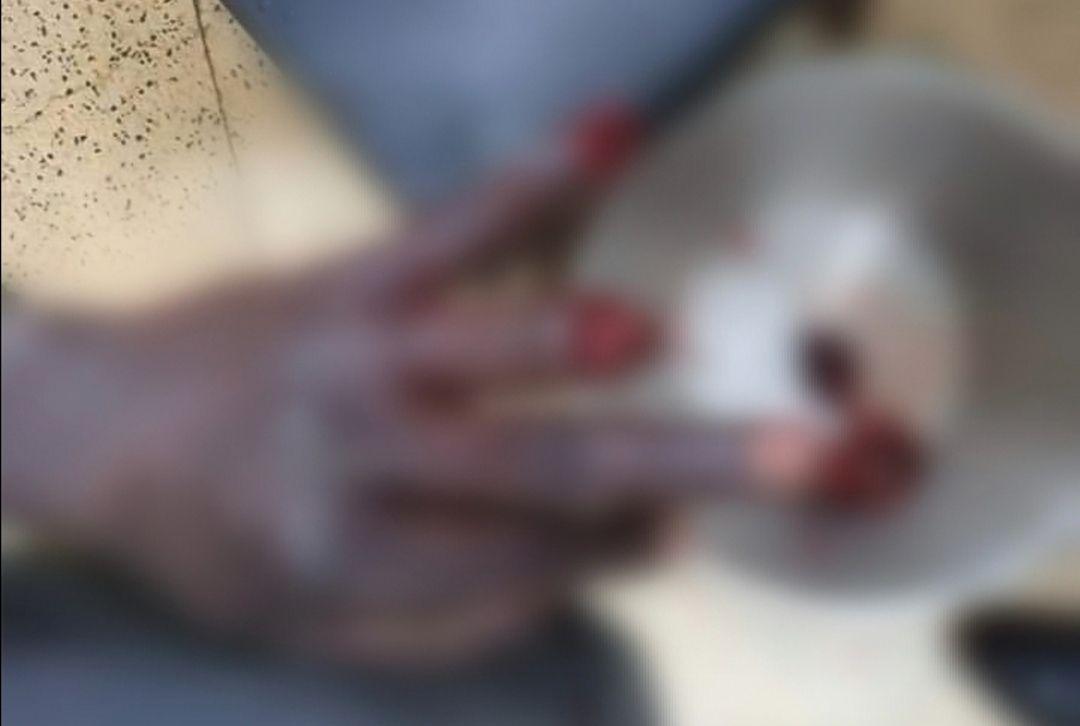The Curfew to prevent the spread of coronavirus has made Kenyans see the worse yet in their police force.
Yesterday night, two residents of Kabarnet Town were shot at by police for flouting the 7pm to 5 am curfew.
The injured were boda boda rider Amos Komen, 24, and Edwin Kibet, 32, a secondhand clothes seller in Kabarnet town. Though mainstream media say they were on a Bodaboda, sources say they were arrested and shot in the arms at point-blank range.
A Twitter user Hon Boniface Tarus (@HonTarus) wrote “Yesterday night, two men were shot at point blank range by police on patron in Kabarnet town, for allegedly flouting the 7-pm-5am curfew”
The pictures are disturbing, viewer discretion advised:


“Regardless of the nature of the threat and its significance, it seems that Kenya’s government has already resorted to the most unsophisticated tool in its arsenal – police violence”, Nanjala wrote on Al Jazeera.
The above incident was confirmed by Baringo Central police commander Francis Gachoki and Kabarnet police station OCS Andrew Kivindyo.
The officer identified as Bazilian Opicho was arrested and locked up awaiting arraignment, Baringo Central police commander Francis Gachoki said.
“The officer is out of order. What he did is totally against our police service regulations and he must be charged. No one is above the law,” Gachoki said.
He said investigations were ongoing to establish the reason of the shooting.
Brutal police Force
The Kenya police service has been accused of atrocities during the COVID-19 pandemic, they’ve killed more people than the coronavirus itself.
Earlier this month, Al Jazeera news channel carried an expose’ on the brutality of the Kenya National Police Service.
The article which was submitted by Kenyan Political activist and author Nanjala Nyabola paints a grim picture and puts into perspective the old Kenyan adage that ‘you are more at risk of being killed by police than criminals in Kenya’.
Now that Kenya has since confirmed 303 cases of coronavirus, 14 deaths and over 80 recoveries, the polcie seems to be competing with coronavirus to kill Kenyans.
Some may argue that the police are instilling discipline on people, but that is not the truth.
Nanjala, in her Al Jazeera article, warns that violence does not necessarily attract obedience, even as she called out other regimes, specifically those of India, Uganda, South Africa, Egypt, stating that they have ‘collapsed to arbitrary violence against civilians under the guise of enforcing curfews and stay-at-home orders’.
“Much like the racist policing of the past, violence may deliver short-term compliance but it cannot hold once the public realises that they vastly outnumber the police. What will we do with the people if they do not understand why they must stay home?”, she posses
Because most of the victims of police brutality are from the informal settlements, she argues, their plight is often washed under the carpet.
“According to media reports, between October 2018 and September 2019, the Kenyan police killed 189 people. The average age of those killed was 28, and in 75 per cent of these cases, the police allege that the victims were criminals and thugs, even where there is compelling evidence to the contrary. And as most of the victims were in informal settlements and away from the middle-and-upper-class gaze, the crime narrative is rarely challenged”.
















